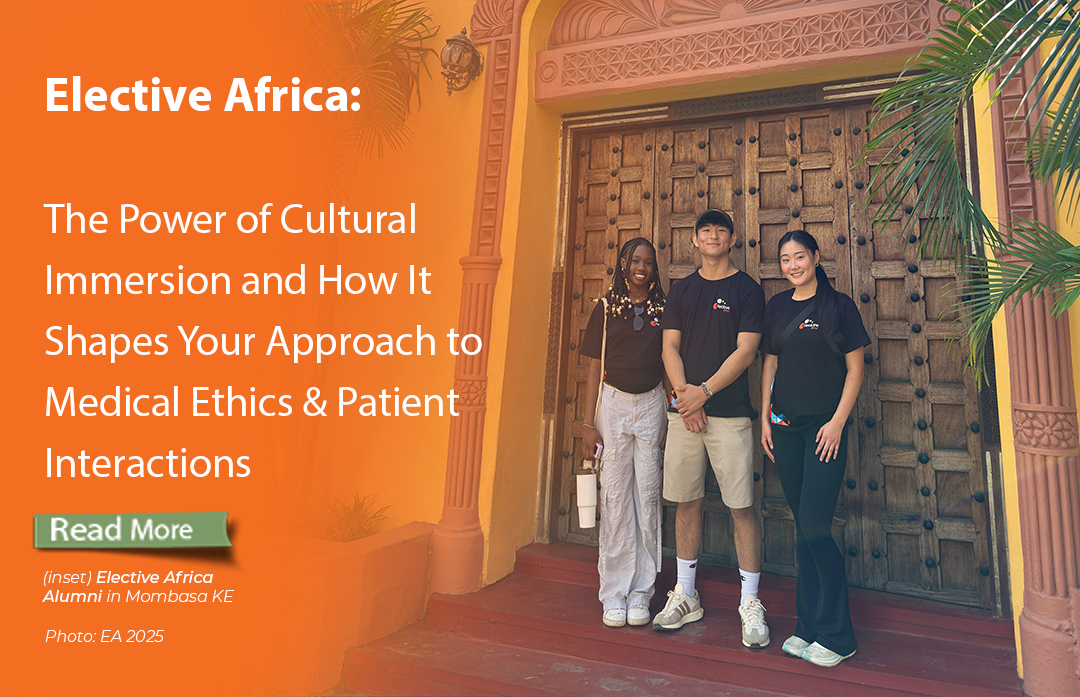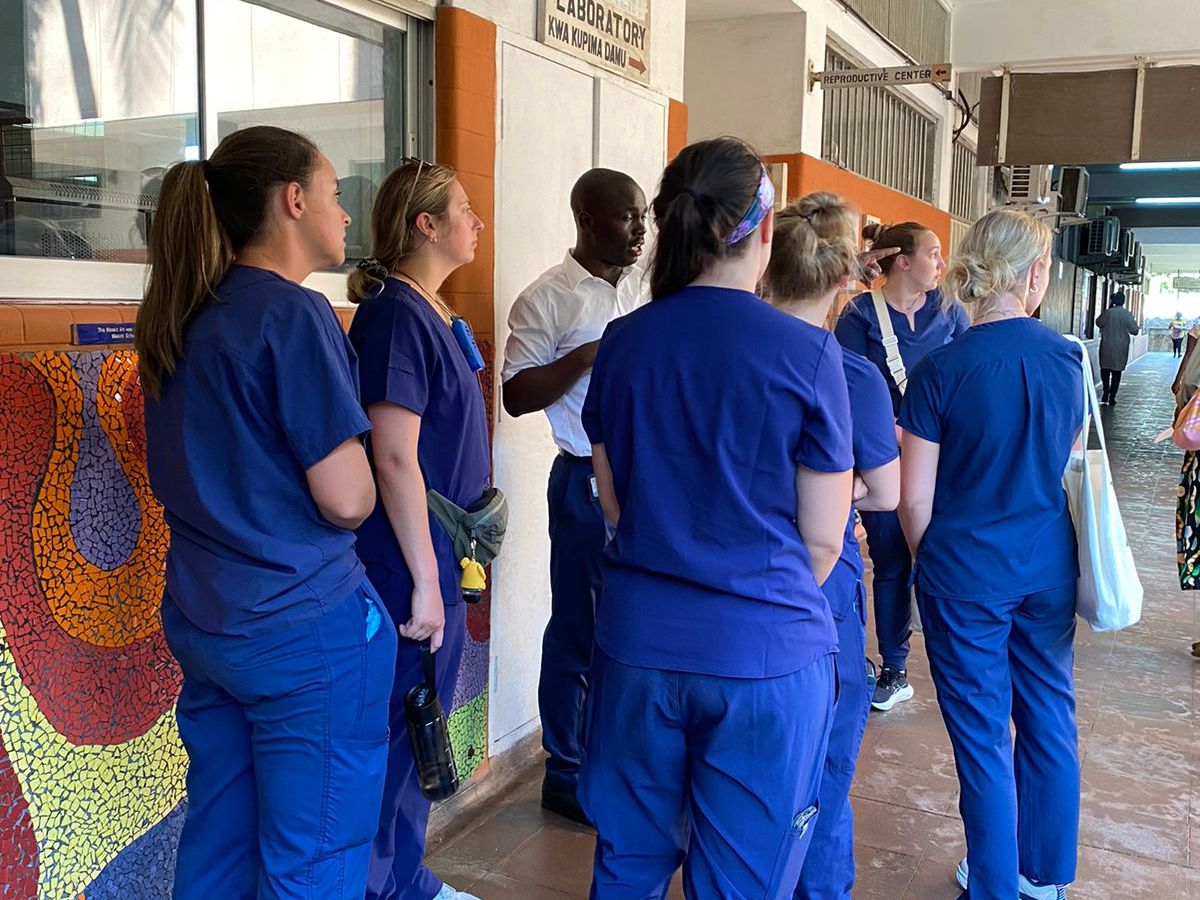 Visit Elective Africa website Visit Elective Africa website
|


|
|
|
| The Power of Cultural Immersion and How It Shapes Your Approach to Medical Ethics and Patient Interactions |
 |
|
There’s a lot that goes into becoming a thoughtful healthcare provider and not all of it is learned in the classroom. Real growth often happens when you step into unfamiliar environments, interact with people whose experiences are different from your own and learn to see healthcare through their eyes. That’s the value of cultural immersion. Through Elective Africa’s international medical internship programs, interns don’t just gain clinical exposure, they engage with communities, traditions and healthcare systems that challenge and expand the way they think. Whether you’re a pre-med, medical student, nursing or physician assistant student, these experiences shape the way you approach both medical ethics and patient interaction in ways that stay with you long after the internship ends. Back to top |
| Cultural Immersion That Shapes the Way You See Healthcare |
 |
|
Cultural immersion refers to the process of fully engaging with a community’s way of life, customs, language, and perspectives. During an international medical internship with Elective Africa, interns live in local neighborhoods, interact with communities and experience daily life in Kenya or Tanzania, two countries rich in tradition, diversity and historical depth. Whether it's navigating the local markets, engaging with hospital staff from different ethnic backgrounds, or participating in guided cultural tours, you are constantly exposed to viewpoints and lifestyles that broaden your understanding. This kind of immersion nurtures cultural humility and the understanding that no one approach to care fits every patient. Instead of assuming a universal perspective, interns start to ask better questions: How might a patient’s background influence their understanding of illness? What role does family, community or spirituality play in their treatment decisions? Back to top |
| How Cultural Context Shapes Medical Ethics |
 |
|
Medical ethics don’t exist in a vacuum and they’re interpreted and applied differently within the cultural, social, and economic realities of each setting. During your clinical rotations you will observe how core principles like autonomy, informed consent, confidentiality and beneficence are navigated in real-world, resource-limited environments.
Scenarios such as disclosing terminal diagnoses, obtaining consent in communities where family decision-making is central or distributing scarce medical resources challenge you to think beyond the frameworks you are used to. These moments often lead to meaningful conversations with local doctors that open the door to new perspectives on care, ethics and patient rights. Rather than seeing ethics as a fixed set of rules, you begin to understand it as a flexible, deeply human practice shaped by culture and circumstance. Back to top |
| Enhancing Patient Interactions Through Cultural Sensitivity |
 |
|
Effective patient interaction is the foundation of quality care. In East African hospitals where language differences, cultural beliefs, and social norms vary widely, interns quickly discover that communication isn’t just about speaking, it’s about understanding. Interns quickly learn that listening, empathy, and non-verbal cues can be just as important as clinical knowledge. You will observe how local healthcare providers navigate these challenges with deep cultural awareness, often involving family members in decisions, using local languages or incorporating traditional beliefs into care discussions. By observing these interactions, you gain practical strategies to build trust with patients, not only during your time abroad but throughout your future careers especially in increasingly diverse patient populations back home. This ability to establish rapport across cultures improves health outcomes, reduces miscommunication, and reinforces patient-centered care. Back to top |
| Why Cultural Immersion is Core to Elective Africa’s Mission |
 |
|
At Elective Africa, we understand that healthcare is deeply influenced by the people, cultures and environments in which it takes place. That’s why cultural immersion is a core pillar in our programs. That’s why our programs are intentionally designed to offer:
These elements together ensure that interns are not just gaining hours of clinical exposure, but more self-aware, empathetic, and prepared to practice in diverse settings. Back to top |
| Conclusion |
 |
|
Cultural immersion has the power to challenge assumptions, deepen understanding and shape more thoughtful healthcare professionals. It teaches future healthcare providers to see patients not just through a clinical lens but through the lens of culture, ethics and lived experience.
Start your journey toward becoming a globally aware and culturally responsive healthcare provider. Join Elective Africa and discover how living and learning in a new culture can transform not only the way you practice medicine but the way you see the world. Back to top |
|
|

 6 2025
6 2025